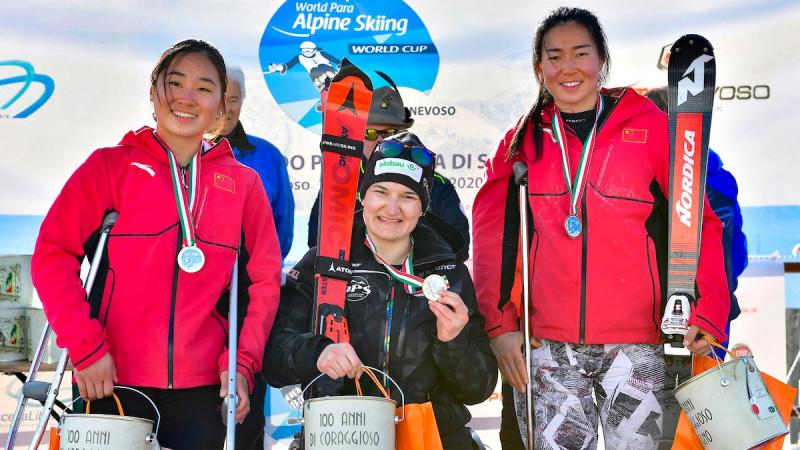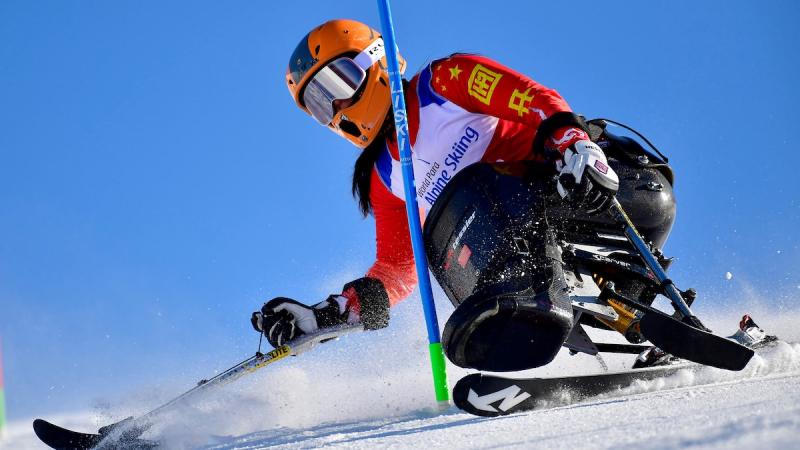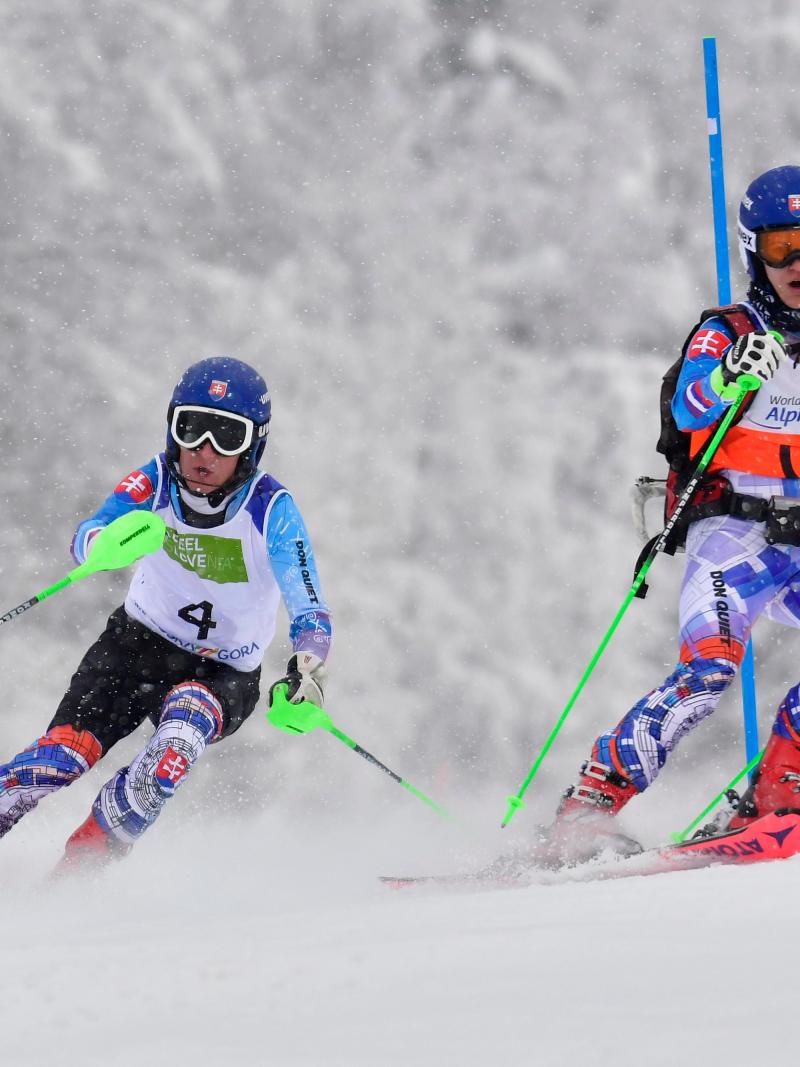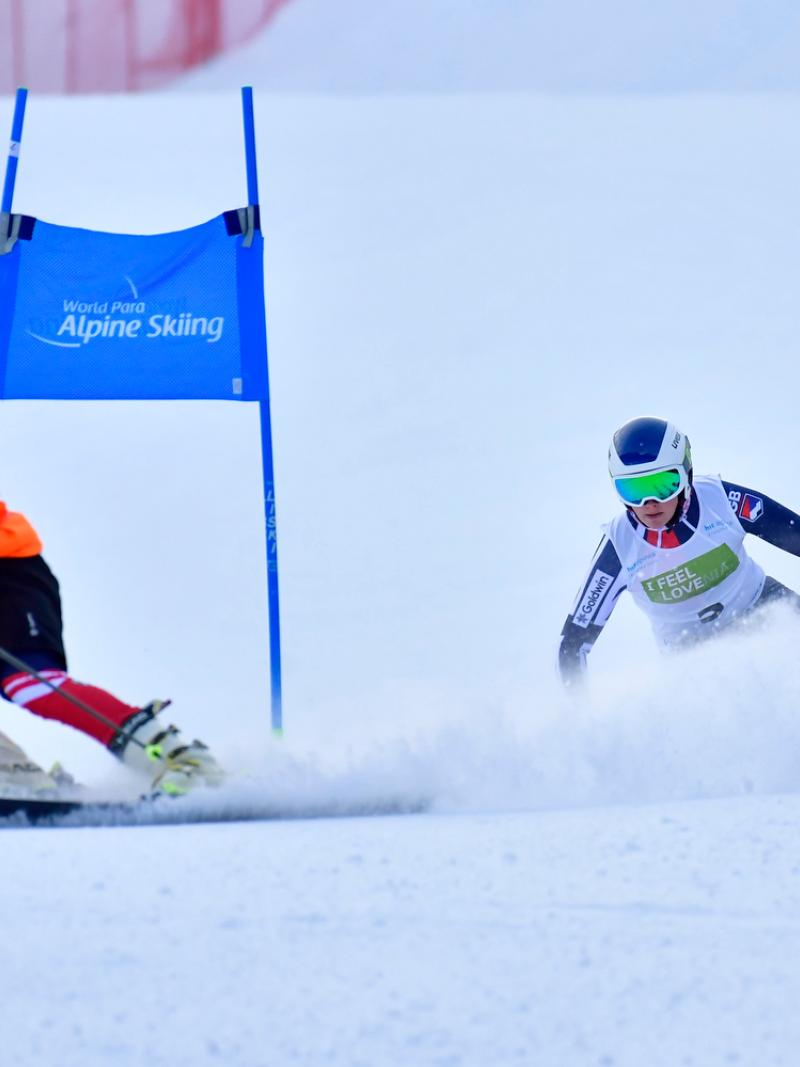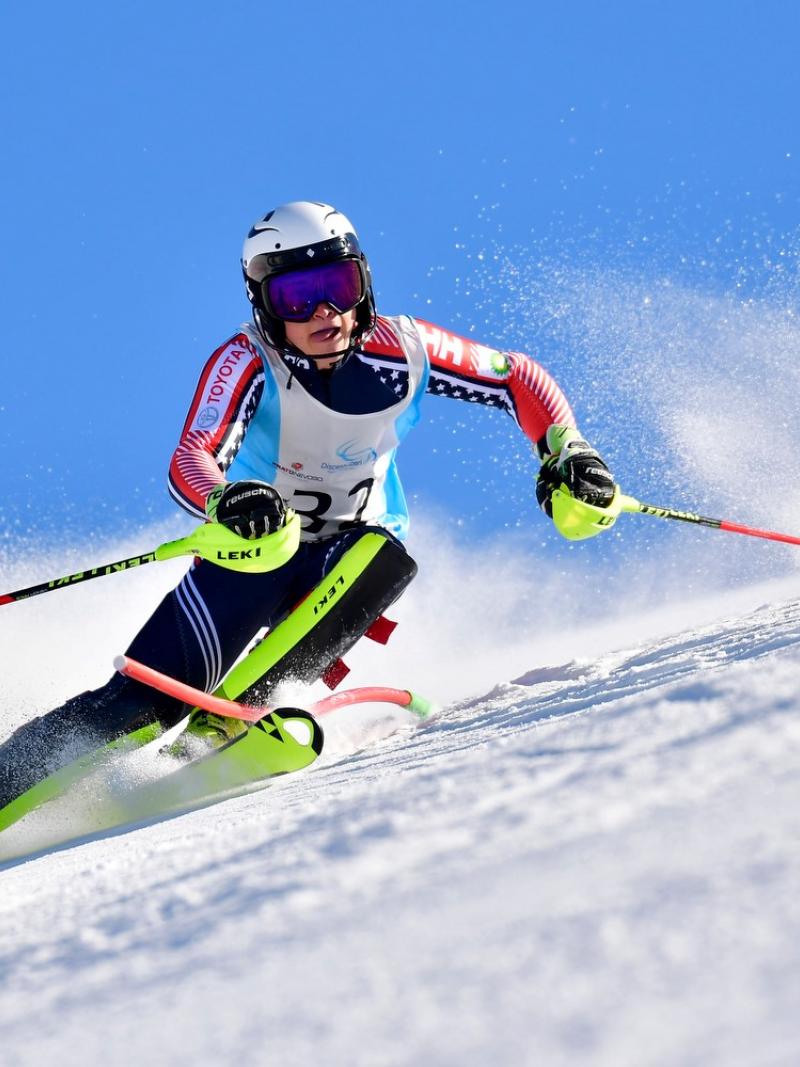China’s Para Alpine team wakes up with a roar
The 'Sleeping Giant' debuts at World Para Alpine Skiing World Cup with 18 medals 29 Jan 2020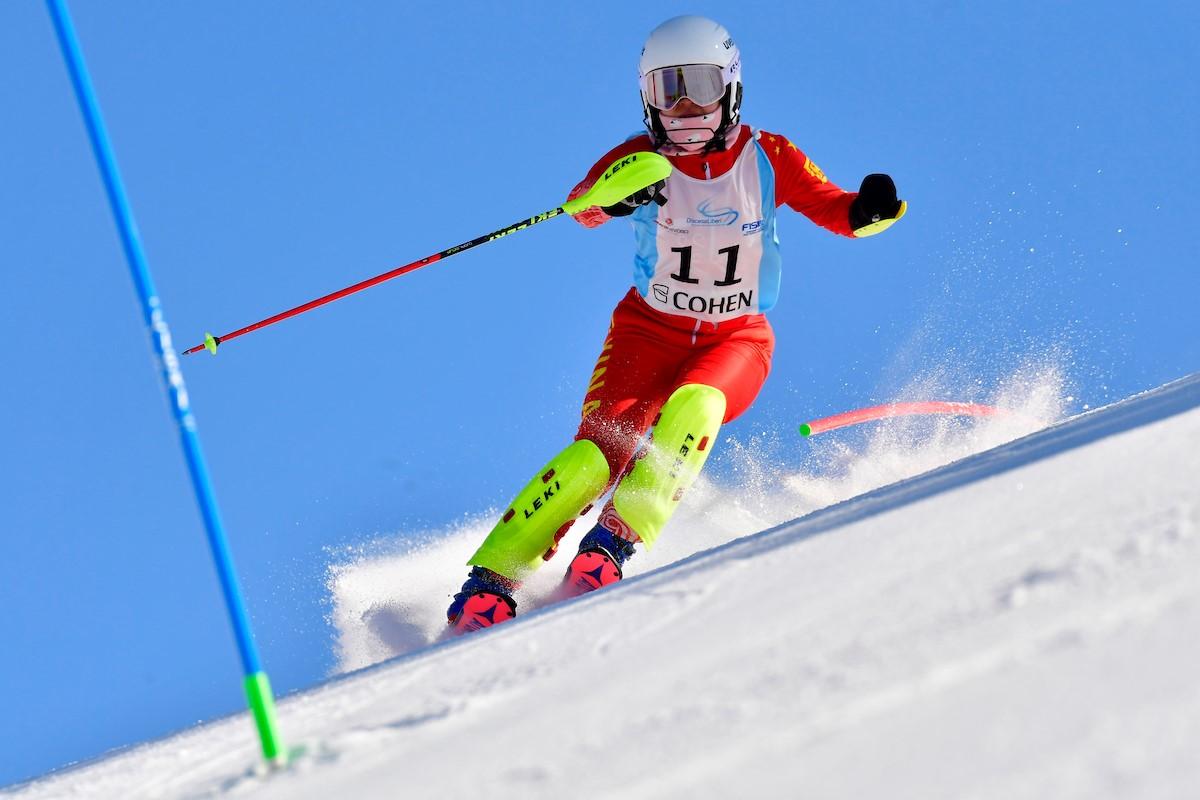
When Italy-born coach Dario Capelli first arrived in China in August 2018 to take over the national Para Alpine team, he was given a large group of inexperienced athletes and the target of winning a gold medal at the Paralympic Winter Games in the nation’s capital in four years.
Taking a risky plunge was nothing new to the skiing coach, so Capelli took the job. “They told me, ‘this is your team, we need the gold medal’,” he recalled. “I said, ‘I’m crazy but I will try’.”
Within five months, his athletes were competing at the 2019 World Para Alpine Skiing Championships.
Another year after that, standing skier Zhang Mengqiu won the first ever gold medal for China at the World Para Alpine Skiing World Cup. She accomplished the feat at the competition’s 2019-20 season opener, outracing eight-time Paralympic champion Marie Bochet of France and fellow Paralympic champion Mollie Jepsen of Canada.
“I feel very happy for this achievement for the country,” said Zhang, who already has her sights set on Beijing 2022. I will try my best to get the best place there. I want everyone to be proud of me like when I got the first medal for my country.”
Starting from scratch
China’s Para Alpine team currently has 75 athletes, five of which made their World Cup debut this January. All of them first tried skiing three to four years ago and are now full-time athletes.
“Three years ago I didn’t know about skiing because it’s not very popular in China, and then I was chosen and now I’m getting familiar with the sport,” said sit skier Zhang Wenjing.
“At first I was very scared about the skiing because it’s too high. But I got used to it and I want to push harder for the result. Sometimes maybe I am scared, but I will get over it.”
Trying to transform from a team that was full of novices at the time of the PyeongChang 2018 Paralympic Winter Games to potential gold medallists at Beijing 2022, the Chinese skiers have adopted a rigorous training schedule that has them switching between the northern and southern hemispheres with little time off.
This season the Chinese team has a packed schedule filled with World, European and Asian Cup races. Once the competitive season is over, the athletes will get a break for one month, only to resume physical training in May and get back on the slopes by early summer.
“All year we stay together - 24 hours, seven days a week, we live together. Perhaps I am like their father,” Capelli said.
“I like the athletes because they put in a lot of passion. They love skiing,” he added. “They are different athletes than those in Europe. When the ski is broken or the mono-ski is no good, they continue to ski. They don’t say, ‘oh, my mono-ski is broken, oh I have bad skis”. No, they continue, because in China it is this or you go home.”
Golden alarm
This dedication to the sport helped Chinese skiers to make a quick ascent to the world stage.
Two years ago the best place for the only Chinese Para Alpine skier at the 2018 Paralympic Winter Games was sixth for Liu Sitong in the women’s sitting slalom - a team’s best she matched at the 2019 World Championships - but this year, Chinese athletes were winning medals starting with the first races of the 2019-20 season’s World Cup.
In addition to her milestone gold in Veysonnaz, Switzerland, Zhang Mengqiu got three more gold medals in the women’s standing races at the following World Cups in Prato Nevoso, Italy and Kranjska Gora, Slovenia, as well as three silver.
Her teammate Zhang Wenjing wrapped up the January World Cups with a gold and five silvers, while Liu took a gold, a silver and three bronze.
“I was very surprised how good they are this season because last season they were there but they had no chance, and this season they can be one second away from me and that’s very cool.
“I think it will be very interesting for the next two years,” said Germany’s Anna-Lena Forster, Zhang and Liu’s main rival in the women’s sitting class. “Our coach said we have to push the next two years because the Chinese will not sleep.”
Despite their quick success, however, Capelli cautions against having extremely high expectations of the novice skiers.
“[Chinese government officials] are happy, but now we need to teach them that it’s not easy to win because they say, ‘oh, it’s the first World Cup, you’re a winner - it’s easy’. No, it’s not easy because behind there is very hard work for the athletes,” he said. “The goal is the gold medal [in Beijing] so we work for that, but we need to teach them all this comes step by step.”





